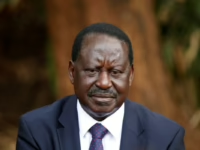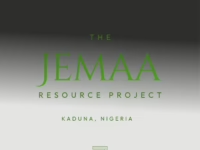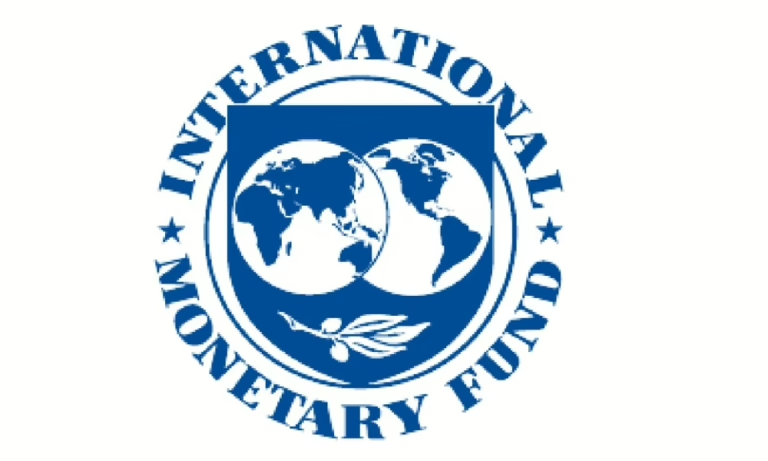The International Monetary Fund (IMF) has enhanced its forecast for Nigeria’s economic growth, now anticipating a 3.9% increase in Gross Domestic Product (GDP) for 2025.
This positive revision is attributed to elevated oil output, heightened investor optimism, and a more accommodating fiscal policy environment.
These updated projections are detailed in the IMF’s recent World Economic Outlook report titled ‘Global Economy in Flux, Prospects Remain Dim,’ published on Tuesday.
The new forecast marks a 0.5 percentage point rise from the previous estimate, signaling a more favorable medium-term economic outlook for Nigeria.
Earlier in July, the IMF had already adjusted Nigeria’s 2025 growth forecast upward to 3.4%, up by 0.4 percentage points from the 3.0% predicted in the April 2025 edition of the World Economic Outlook.
At the report’s unveiling, Deniz Igan, Head of the IMF Research Department, confirmed the upward revision, stating, “We now expect Nigeria’s GDP to grow by 3.9% in 2025, an increase of 0.5 percentage points from our prior forecast. Additionally, the 2026 growth projection has been raised by 0.9 percentage points to 4.2%.”
He further noted, “The 2024 growth estimate has also been revised upward to 4.1%, which is 0.7 percentage points higher than our earlier assessment.”
This upward adjustment for 2024 is largely due to Nigeria’s GDP rebasing, which broadens the scope of economic activities captured, particularly those within the informal sector that were previously undercounted.
“Looking ahead to 2025 and 2026, the improved outlook is supported by diminished uncertainties, minimal effects from U.S. tariffs given Nigeria’s limited exposure, a stronger exchange rate since July, enhanced financial conditions fueled by growing investor confidence, a supportive fiscal framework, and increased oil production amid better security conditions. These elements collectively underpin the upward revisions in Nigeria’s medium-term growth forecast,” Igan explained.
While Nigeria’s growth prospects have been upgraded, the broader sub-Saharan Africa region is expected to experience modest growth, remaining steady at 4.1% in 2025 before rising slightly to 4.4% in 2026.
The report highlights, “This represents a cumulative 0.5 percentage point increase compared to the April 2025 forecast but a slight 0.1 percentage point decrease relative to the October 2024 outlook.”
“Nigeria’s growth outlook benefits from domestic factors such as increased oil production, improved investor sentiment, and a supportive fiscal stance in 2026, alongside its limited vulnerability to heightened U.S. tariffs. Conversely, many other economies face downward revisions due to shifting global trade dynamics and changes in official aid flows,” the report added.
RELATED: Edo Governor Issues Warning to Commissioners Over Exco Council Meeting Protocols (Video)
This optimistic revision follows Fitch Ratings’ affirmation of Nigeria’s Long-Term Foreign-Currency Issuer Default Rating at ‘B’ with a stable outlook. Fitch emphasized the pivotal role of the Central Bank of Nigeria, noting, “Nigeria’s ‘B’ rating is underpinned by its sizable economy, a relatively advanced and liquid domestic debt market, substantial oil and gas reserves, and an enhanced monetary and exchange rate policy framework.”
On the global front, the IMF projects worldwide economic growth at 3.2% for this year and 3.1% for the next. The organization credits the private sector’s adaptability-evident in early-year import surges and rapid supply chain realignments-as well as ongoing trade negotiations and a generally open global trading system for this resilience.
Kristalina Georgieva, IMF Managing Director, remarked that the global economy has demonstrated greater resilience than anticipated despite facing multiple shocks.
Prior to the report’s release, IMF Chief Economist Pierre-Olivier Gourinchas commented, “Global growth remains stable despite significant policy changes. The impact of tariff increases has been less severe than expected, thanks to new trade agreements, numerous exemptions, and the private sector’s nimbleness in rerouting supply chains. Consequently, global growth is forecasted at 3.2% this year and 3.1% next year, a slight downgrade from last October. However, beneath this stability, complex dynamics are influencing activity and inflation, including accommodative financial conditions, a weaker dollar, fiscal stimulus in key countries, and surging investments in artificial intelligence.”
Despite a steady start to the year, the outlook remains precarious with risks skewed toward the downside. The primary concern is the potential escalation of tariffs amid unresolved trade disputes, which, combined with supply chain disruptions, could reduce global output by 0.3% in 2025.
“Downside risks persist. The rapid growth in AI could provoke a sharp market correction if profit expectations fall short. Fiscal pressures are intensifying in many nations and may interact with financial market vulnerabilities, raising borrowing costs and rollover risks. Additionally, political pressures threaten institutional credibility, particularly central bank independence, which could destabilize inflation expectations,” Gourinchas warned.
“Nonetheless, there are also upside possibilities. A quicker resolution of trade tensions and the resulting reduction in uncertainty, along with significant productivity gains from AI, could substantially boost global growth,” he added.
The IMF further estimates that the combined benefits of reduced uncertainty, lower tariffs, and AI advancements could increase global output by approximately one percent in the near term, highlighting the importance of policies that restore confidence and predictability.
“Policy measures should focus on rebuilding trust and stability, normalizing trade relations, minimizing uncertainty, and credibly restoring physical infrastructure. Monetary policies must remain independent, transparent, and tailored to maintain price stability. Over the long term, investments in innovation, productivity, and multilateral cooperation are essential, alongside empowering private enterprise and prioritizing broad-based policies such as education, infrastructure, and smart regulation over costly sector-specific subsidies,” Gourinchas concluded.
By: Babajide Okeowo





















